Boston University Celebrates Women’s History Month
In honor of Women’s History Month, students, faculty, and staff reflect on those who have influenced their lives

The Women Who Inspire Us
In honor of Women’s History Month, students, faculty, and staff reflect on those who have influenced their lives
Each March, the nation celebrates Women’s History Month, honoring the vital role of women in American history. The theme for this year’s observance is “Moving Forward Together! Women Educating & Inspiring Generations,” and to acknowledge the enduring legacy of women, BU Today invited members of the BU community to write short essays about the women who have inspired them. We heard from students, faculty, and staff. Some cited a family member as a major inspiration in their lives, others honored teachers, mentors, and authors. Each of these women has a remarkable story. Take a look.
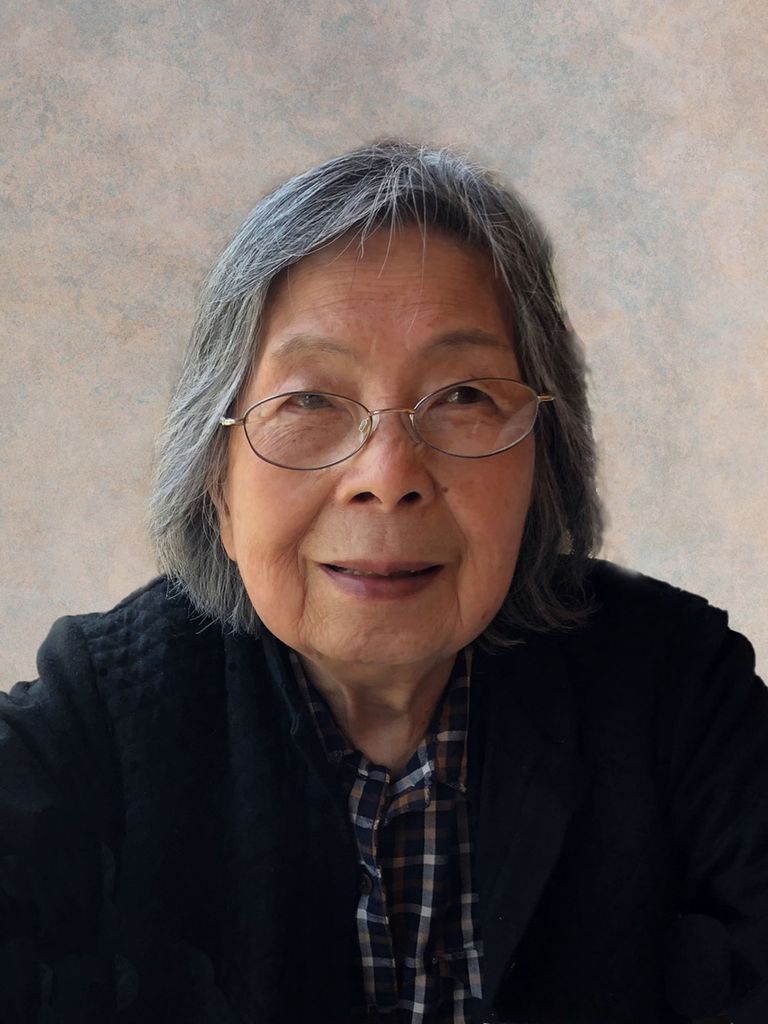
My grandmother, Wah Szeto Wong, grew up with two younger brothers, who described her as smart and fearless. Though her father was a professor (and her brother a future one) she was not educated beyond youth due to her gender. Being from an educated family, she was forced to flee her home in Hoiping, China, during the Chinese Communist Revolution, alone, with a toddler and pregnant with my father, to the ghettos of Hong Kong. My grandfather was already working in the United States.
She was finally able to join my grandfather in the US after being apart for almost a decade. In the US, she had two more daughters and was the matriarch of our family.
Running a laundromat on Tremont Street in Mission Hill, here in Boston, and a Chinese takeout restaurant in Brigham Circle, she saw all her children and grandchildren receive college and graduate degrees, even though she was denied that potential because she was a woman.
She passed away last year at the young age of 96. She taught me so much and instilled in me a love of food and cooking, a green thumb, and an openness and curiosity about this world that will never cease to amaze me.
Kimberly Wong, associate director for career development, School of Law
Wah Szeto Wong. Photo courtesy of Kimberly Wong
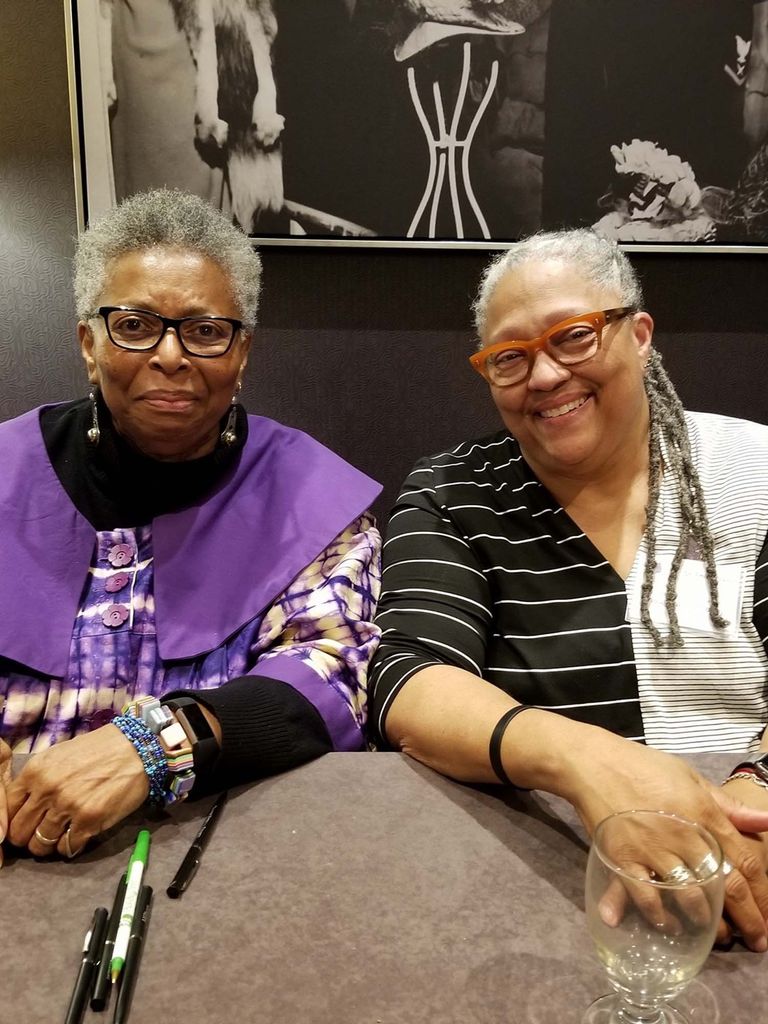
Katie Geneva Cannon moved from icon to mentor to colleague to friend in the years I knew her, before she died far too soon, in 2018. For young Black women like me in the late 1970s and 1980s, who were entering seminaries and did not have very many role models that looked like us, Cannon, the first Black woman to be ordained in the Presbyterian Church US and one of the key figures who founded the academic discipline now known as Womanist Ethics and Theology, was someone I and others could hold onto as we were making our way through master’s programs and, eventually, doctoral programs. Cannon had a way of inviting you to join her as she looked beyond your affect and words to probe your inner life and invite your ideas and hopes to see the light of day. It is impossible to say how many lives she touched in this way. But she gave us a model for what mentoring can and should look like and the importance of passing it along to the generations a-coming.
Emilie M. Townes, Martin Luther King, Jr., Professor of Religion and Black Studies, School of Theology
Katie Geneva Cannon (left), with Emilie M. Townes. Photo courtesy of Emilie M. Townes

When I think of the word “inspired,” I think about being born twice. We are born when we enter the world, and then we are born when we are “inspired”—when we are “moved” to move and create our own joyous yet collective pathway in the horizons that lie ahead.
It is difficult to choose one woman who inspired me because so many did so, personally, in countless ways—from my dear, incomparable mother and grandmother to my tremendous spouse/soulmate. There were countless other women as well who not only invigorated, but challenged, supported, and most profoundly, listened to me.
In choosing one, Pearl Lang comes to mind. A renowned dancer with the Martha Graham Dance Company and a celebrated educator, she took me under her mentorship and gave me wings to trust, imprint, and generously embody. I remember fondly working alone with her in a studio in New York City when I was a sophomore at a conservatory, and she invited me to be a guest performer with her company. With committed vigor, she remarked, “You may be hard of hearing, but you have a heart, you have soul, and you have an instrument of expression like no other. What matters most, Yo-EL, is what you feel from the inside—the rhythm of your own curiosity, imagination, creativity, and generosity. That is your hearing aid, and this mindset is your movement.”
Thank you, Pearl, for that second “birth.”
Yo-EL Cassel, assistant professor of movement, College of Fine Arts School of Theatre
Pearl Lang. Photo via Library of Congress/Martha Graham collection, 1896-2003
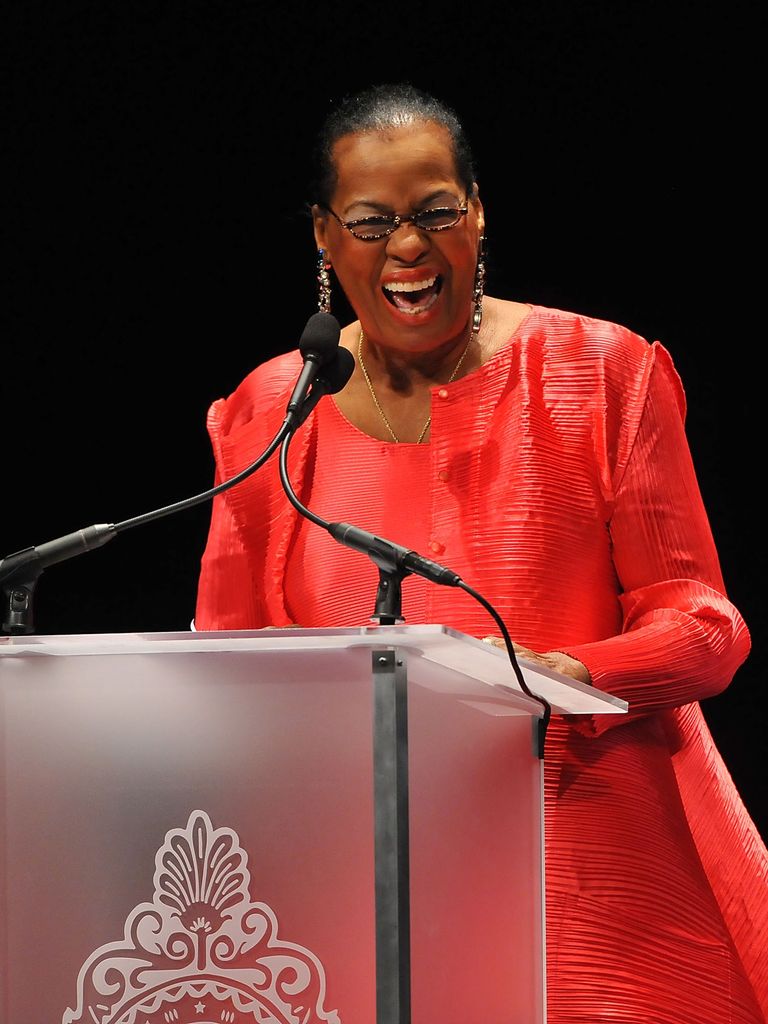
The great Eleanor Traylor is a woman who inspires me deeply. Growing up, I recognized her gravitas and grandeur when my family visited her. Her New Year’s Day parties were a particular highlight. As the holder of an English literature degree, I have long been impressed by “The Godmother,” as she’s affectionately called. Eleanor is a leading voice in support of Black literature and the arts. Incredibly, she has been a colleague and friend to such brilliant minds as Maya Angelou, James Baldwin, and Toni Morrison. She has also been a leader in higher education. As former chair of the humanities division and English department at Howard University, she has had an impact on generations of students. Thank you, Eleanor.
Melissa Gilliam, president, Boston University
Eleanor Traylor. Photo via Getty Images/Larry French
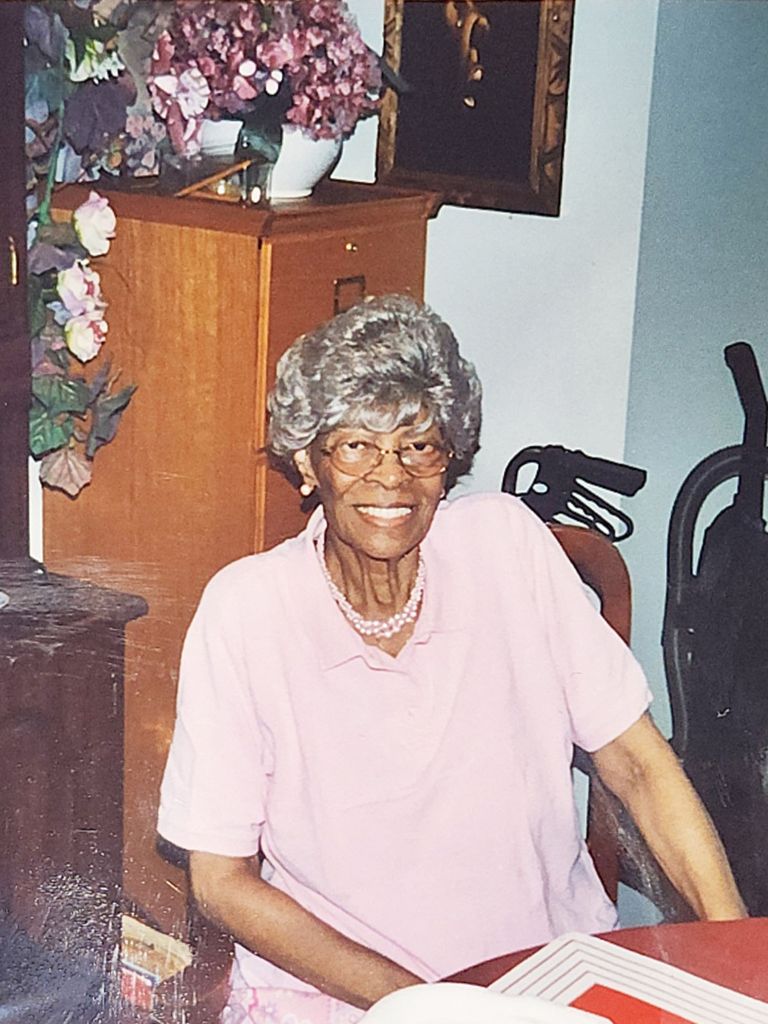
My Grandma Jean has always been the most inspiring influence in my life. After my mom passed away when I was 20, she stepped in and offered unwavering emotional support throughout my life. Her wisdom was profound, often expressed through memorable sayings like, “You are not a victim; you are a volunteer,” which reminded me to take charge of my circumstances when facing difficult people. Grandma Jean’s impact went beyond her words; she embodied resilience, strength, and love in every action. Her ability to transform life’s challenges into growth opportunities taught me invaluable lessons. Her practical advice and constant encouragement have shaped me into the successful woman I am today. Grandma Jean’s legacy continues in the principles she instilled in me, and I strive to honor her by embodying the same wisdom and strength she so generously shared.
Malika Jeffries-EL, professor of chemistry, College of Arts & Sciences, associate dean, Graduate School of Arts & Sciences
Jean Wilson-Smith. Photo courtesy of Malika Jeffries-EL
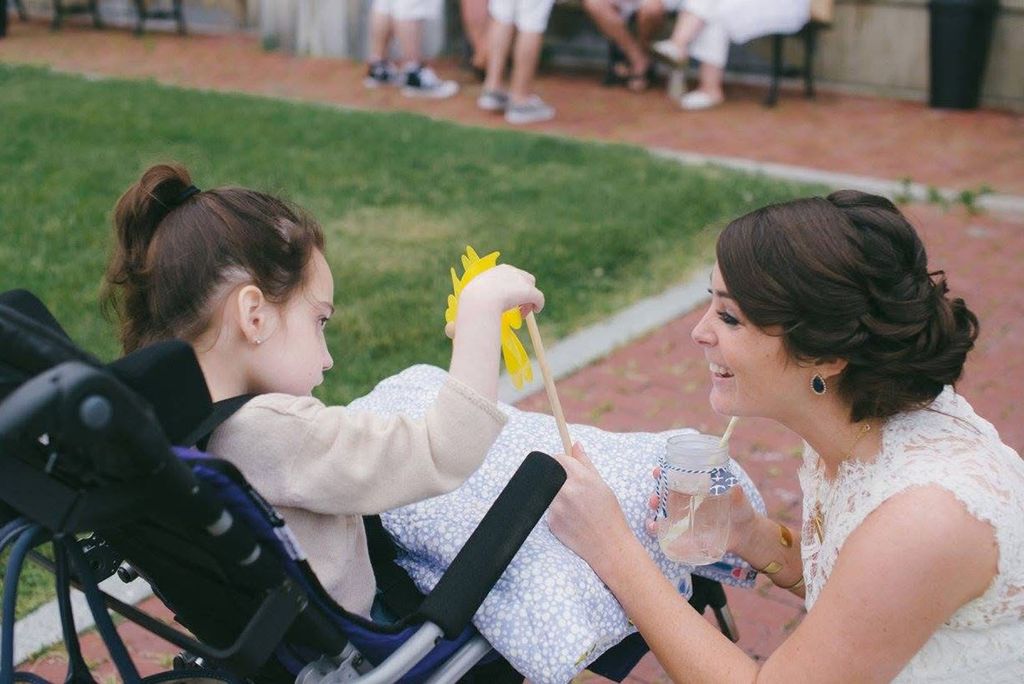
Peyton was a light in this world—a child whose presence could lift my spirits with just one look. She was sweet, bubbly, and radiated joy. Though never formally diagnosed, she faced a lifetime of complex medical challenges with incredible resilience.
I had the privilege of being Peyton’s nanny during my undergraduate years, starting when she was seven. I continued as part of her care team off and on during the next six years, while completing graduate school. Every day, I saw firsthand the strength she carried through endless doctor’s appointments, therapies, and moments of uncertainty. She taught me how to communicate beyond words, how to advocate fiercely, and how to find joy in the smallest moments. Her sister Joely and the rest of her family became my family, and Peyton became my greatest teacher.
She showed the world what it meant to love unconditionally, to fight every challenge with a quiet and unwavering strength. She shaped the mother I am, the professional I am, and the way I move through the world. Though we lost her this past October at the age of 22, Peyton’s sparkle remains—woven into the lives of those lucky enough to have known her. She was, and always will be, extraordinary.
Elizabeth Vassallo, interim associate dean of student affairs and director of undergraduate student services, Wheelock College of Education & Human Development
Peyton (left), with Elizabeth Vassallo at Vassalo’s wedding. Photo courtesy of Elizabeth Vassallo
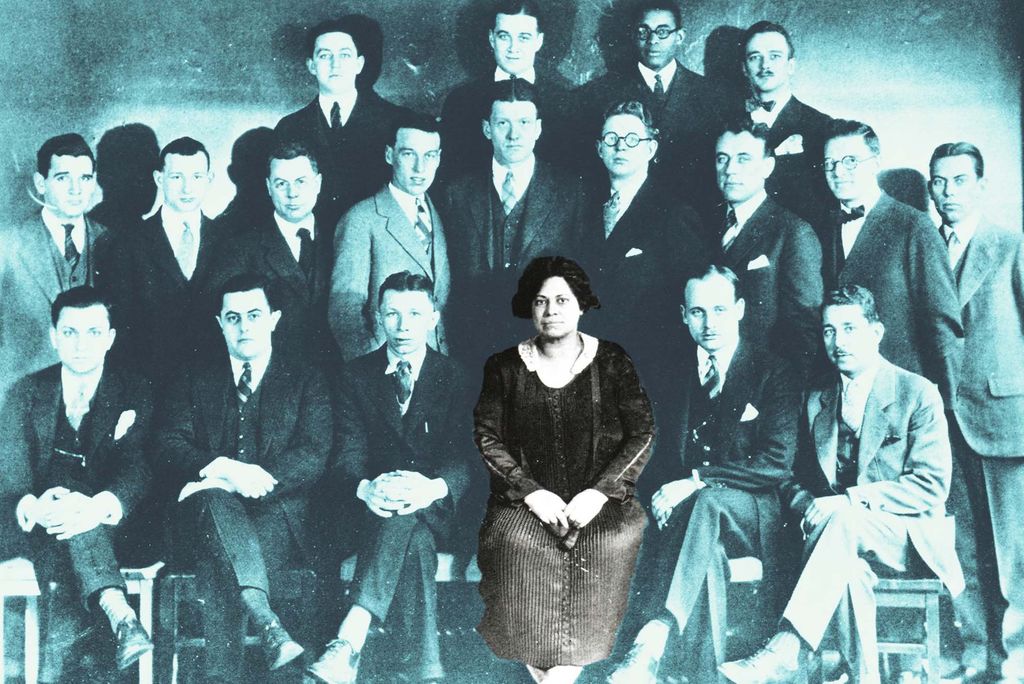
As the executive editor of the Boston University Law Review, I am continually inspired by the remarkable women who have worked on our journal throughout the years. Notable alumnae include Clara Burrill Bruce (LAW1926), who was the first African American in the nation to be the editor-in-chief of a legal journal; Judge Sandra L. Lynch (LAW’71, Hon.’12), the first woman to serve on the U.S. Court of Appeals for the First Circuit; Judge Helen W. Gillmor (LAW’68), the first woman to serve on the U.S. District Court for the District of Hawaii; and Bettina “Betsy” Plevan (LAW’70), one of the first female partners of a major law firm in New York (Proskauer Rose LLP). In honor of Women’s History Month, we are proud to celebrate the trailblazing women of the BU School of Law who have shaped the legal field and continue to inspire future generations.
Alejandro Perez (LAW’25)
Clara Burrill Bruce (LAW’1926) with the other members of the BU Law Review editorial board, 1926. Photo courtesy of Boston University

In 1995 I was notified I had been awarded one of the University of Wisconsin–Madison’s highest honors at the time: an endowed professorship that allowed the recipient to name it to honor a person (almost always no longer living) who was inspirational. I immediately knew whom to honor: Sophonisba Preston Breckinridge.
Breckinridge (1866-1946) was the first woman to receive a Ph.D. in political science (1901, University of Chicago). She was the first woman to graduate from the University of Chicago Law School and the first woman admitted to the Kentucky Bar. Not able to get a job in her field, she became a professor of social economy at the University of Chicago, eventually becoming dean. She did pathbreaking research on women, families, households, and the law. She was one of the first to use quantitative methods. She was an activist, joining Hull House in 1907, working with the amazing women there to make real-world differences in the areas she studied. I am proud to be the Sophonisba P. Breckinridge Professor Emerita. You can learn more about her by reading Anya Jabour’s Sophonisba Breckinridge: Championing Women’s Activism in Modern America (University of Illinois Press, 2019).
Virginia Sapiro, professor emerita of political science, College of Arts & Sciences, dean emerita, Arts & Sciences
Sophonisba P. Breckenridge: Photo via Library of Congress/Bain News Service

My mother, Vilma Díaz-Flores, is a woman who inspires me and keeps me rooted in my values. Born and raised in Aguas Buenas, Puerto Rico, where I grew up, she has dedicated her life to her community. She worked for 40 years as a teacher in rural communities. More than an educator, she is a mobilizer responding to social inequities. In collaboration with other teachers and leaders in the 1970s and 1980s, my mother collected resources to make sure students could have shoes, uniforms, and materials to attend school. With my father, she took neighbors to see the ocean for the first time. Currently, she works with a community of faith that is not silent to political turmoil. She taught me that, as a society, we may have different perspectives, but our shared values of solidarity and respect lead us to common ground. She inspires my work as an educator, activist, and community-centered public health scholar. Mamá continues to teach me about working with others and leading with hope.
Carlos Rodriguez-Diaz, chair and professor of community health sciences, School of Public Health
Vilma Díaz-Flores, with her son, Carlos Rodriguez-Diaz. Photo courtesy of Carlos Rodriguez-Diaz
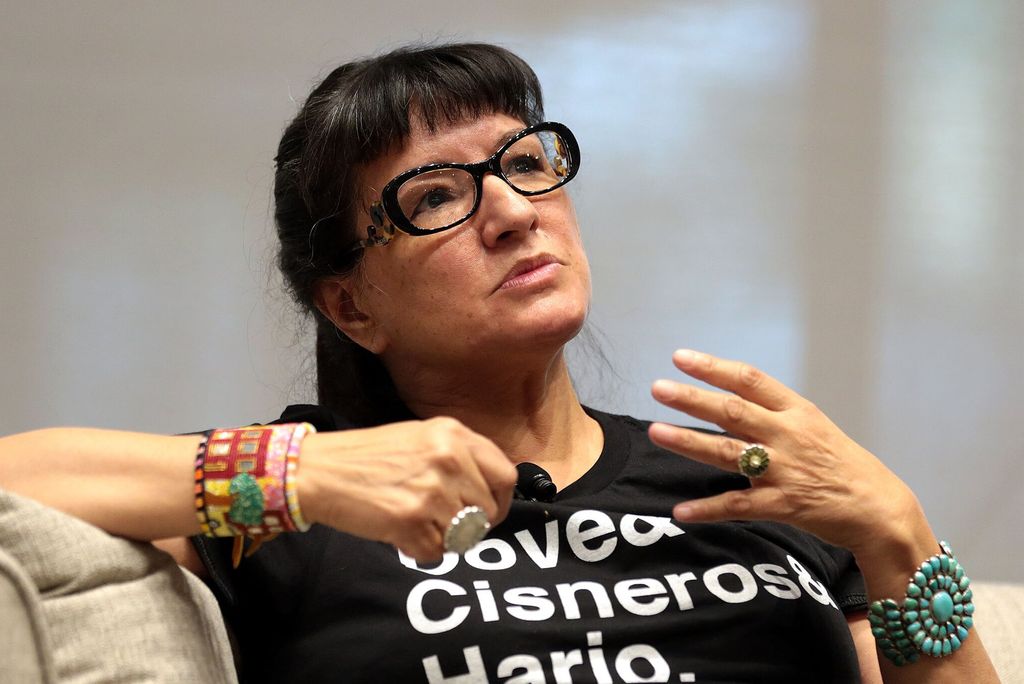
This Women’s History Month, I want to pay homage to Sandra Cisneros, the Chicana writer who penned The House on Mango Street, a series of short vignettes that tell the story of a young girl named Esperanza, by offering this mini-vignette styled after the opener in her classic book.
“I didn’t always have a chance to see myself reflected in literature. Before The House on Mango Street, I only occasionally glimpsed faint outlines of my life in stories like Roll of Thunder, Hear My Cry. Before that, I don’t remember seeing myself at all in books. But what I remember most is feeling carefree restlessness—the peculiar feeling of astonishment and elation—at fully seeing my experiences in words for the first time. ‘The House on Mango Street.’ ‘My Name.’ ‘Those Who Don’t Know.’ ‘Bums in the Attic.’ Each time it seemed, a new vignette exposed one more layer of my story, making The Housing on Mango Street mine.”
Angela Onwuachi-Willig, dean and Ryan Roth Gallo Professor of Law, School of Law
Sandra Cisneros. Photo via Wikimedia Commons/Gage

My mother, Rejoice Antwi, has always been a source of inspiration, support, and light in my life. From the moment I was born until this very moment, she has made sacrifices for me and my siblings. The biggest sacrifice she made was when she chose to forgo her dream for further education in our native Ghana in order to offer my siblings and me the chance for a better life in the United States. It was an incredible act of motherly love, one that has stuck with me and motivated me through my time at BU to give back to her in any and every way possible. She continues to work as a nurse’s assistant, working overnight shifts to support my family and my dreams. At the same time, she’s a valued member of our community, supporting her local church with food while volunteering to take care of the elderly. There’s no better person for a young man like me to look up to than my mother. Happy Women’s History Month, Mom, I love you.
Akwasi Antwi (CAS’25)
Rejoice Antwi, with her son, Akwasi Antwi. Photo courtesy of Akwasi Antwi
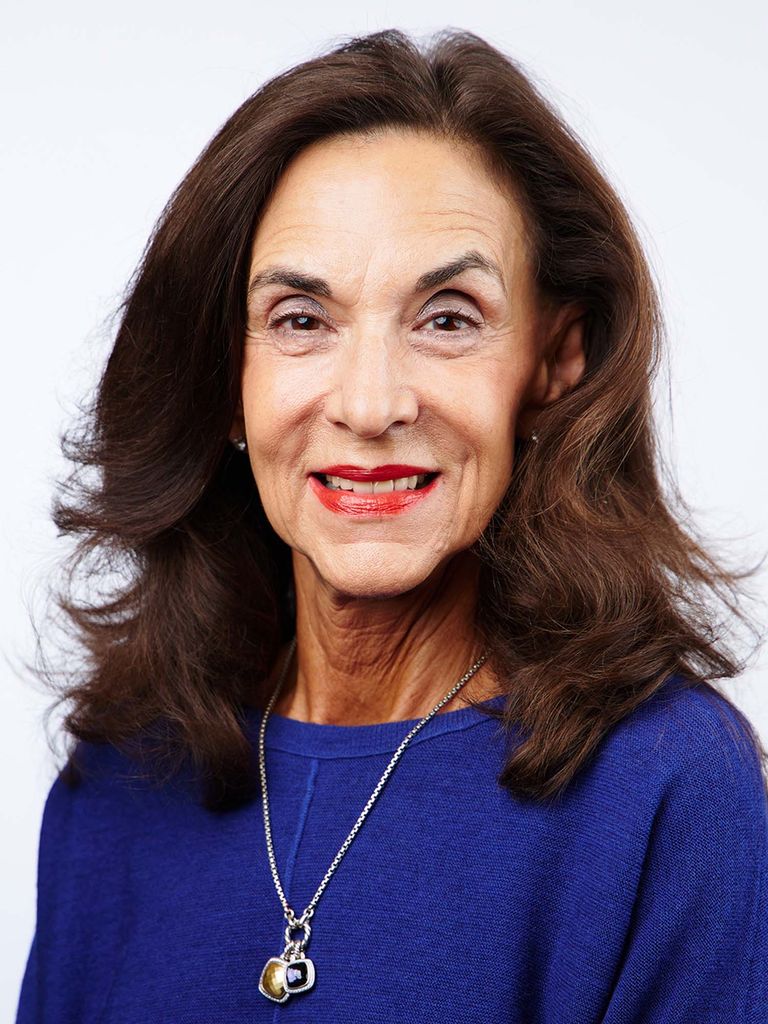
Katheryn Darr, Harrell F. Beck Professor of Hebrew Scripture at BU’s Shool of Theology, is an amazingly knowledgeable professor about the Hebrew Bible, but what makes her inspiring to me is not just her knowledge, but that she got where she is in an extremely male-dominated field. A woman getting a professorship in Biblical studies at a prominent school of theology in the 1980s was no mean feat.
When I came to STH everyone warned us first years about how tough her class was, and it was true. But we learned a lot. I appreciate a female professor who will keep high expectations when so often female faculty are expected to be soft and easy. What I also appreciated was that she was quick to stand up for women in the Bible. One of the things I most remember was her telling us that the “temple prostitutes” in Hosea were a metaphor for Israel’s idolatry, and that we should ignore scholarship that acted like this was real.
Greta Gaffin (STH’23,’26)
Katheryn Darr. Photo courtesy of BU School of Theology

In celebration of women’s history month, I am honored to acknowledge my mother, Erika Naranjo-Rubio, as my primary motivation in pursuing a career in women’s health research. Growing up, my mother would go to school during the day and work at the hospital through the nights—while having to take care of two kids. Her extraordinary dedication to not only taking care of us, but also persevering in the face of adversity has taught me the real meaning of devotion, resilience, and grit. As she continued to fearlessly chase her dream, she was able to give back to individuals in socioeconomically disadvantaged neighborhoods by working and managing prenatal clinics in the community. Her dedication and hard work have brought her to her current role as director of maternal child services at Saint Clare’s Denville Hospital in Denville, N.J. Witnessing women’s health disparities through her eyes has led me to realize the necessity for the development of new tools and therapeutics in this field.
Sebastian Naranjo (ENG’24,’26)
Erika Naranjo-Rubio. Photo courtesy of Sebastian Naranjo (ENG’24,’26)
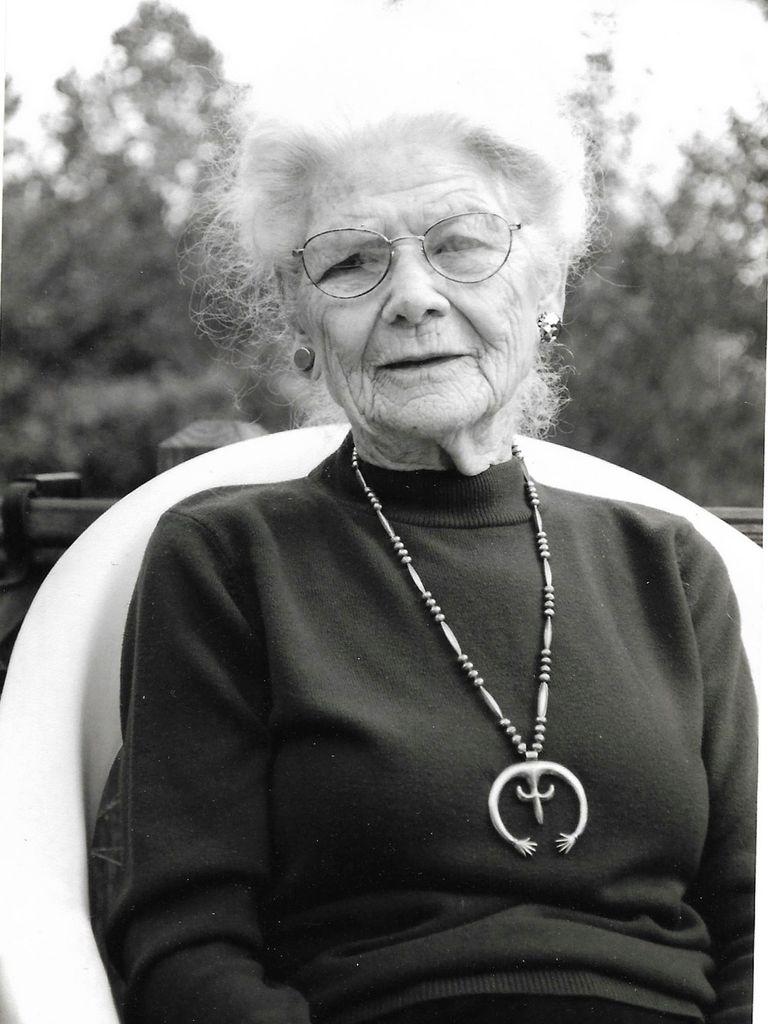
My grandmother, Gladys Bell Denton, brought up in Booneville, Ark., as the 7th of 12 children in a family of strict Free Will Baptists, begged her father to be allowed to play high school basketball. He disapproved of the revealing shorts. She won the argument when her mother sewed her special shorts that reached her knees. She dropped out of high school in 10th grade. Ostensibly, she left school to help her older sister Willie with a new baby. Actually, she left school because one of the teachers was making passes at her. Grandma applied her 10th grade education and her exceptional moxie and built a brilliant life, navigating the poverty and sexism of her place and time because she was simply too grand to be cowed by it all. She welcomed each baby in the family as if all of human history had culminated in the existence of this beautiful child. It is a powerful thing to be raised in the gaze of such a woman. Grandma believed fiercely in education, pushing every one of us to keep on with school. And now I study education and how it shapes people’s health throughout their life.
Maria Glymour, professor and chair of epidemiology, School of Public Health
Gladys Bell Denton. Photo courtesy of Maria Glymour
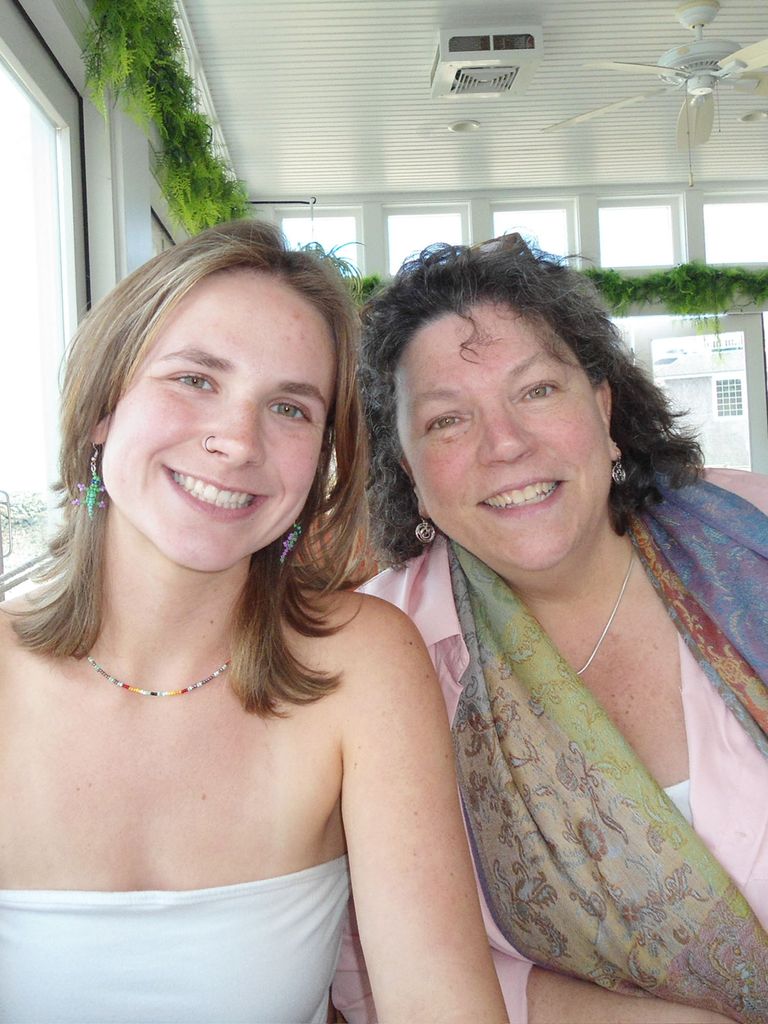
My aunt Mary Donahue—known to everyone as Mary D—is not just the woman who inspires me the most—she is the coolest person I know. She has traveled the world, worked for ambassadors, written books, and been skydiving. She reminds me that life ought to be an adventure, one where you might not always know where you’re going. Her path was anything but traditional, and through patience, love, and hard work, she built an awesome life for herself from the ground up. She exemplifies my core values: kindness, openness, independence, and imperfection. She lives her life on her own terms, unapologetically, and I admire that. My aunt is the kind of person who makes you feel better about the world because she reminds you that some people really are just that good. Mary D is a badass.
Elizabeth Donahue (CAS’26)
Mary D. Donahue (right), with her niece Elizabeth Donahue (CAS’26). Photo courtesy of Elizabeth Donahue

When I think of the women who have inspired me, Beverly Belisle is one of the first to come to mind. Bev has been an inspiration, mentor, and lifelong friend. Although I had known her as a colleague for many years, it was in 2008, when I served as assistant director of the University of Vermont ALANA Student Center (now the Mosaic Center for Students of Color), that Bev became my supervisor. Having a woman of color as a supervisor was profoundly meaningful to me. As the director, Bev tirelessly advocated for students with marginalized identities, something that I continue to do in my career today. Our shared experience as full-time working mothers, each balancing family and career, strengthened our bond. Bev’s wisdom and advice were invaluable as I navigated life, and I will always be grateful for her support.
Maria Erb, executive director, The Newbury Center
Beverly Belisle (left), with Maria Erb. Photo courtesy of Maria Erb
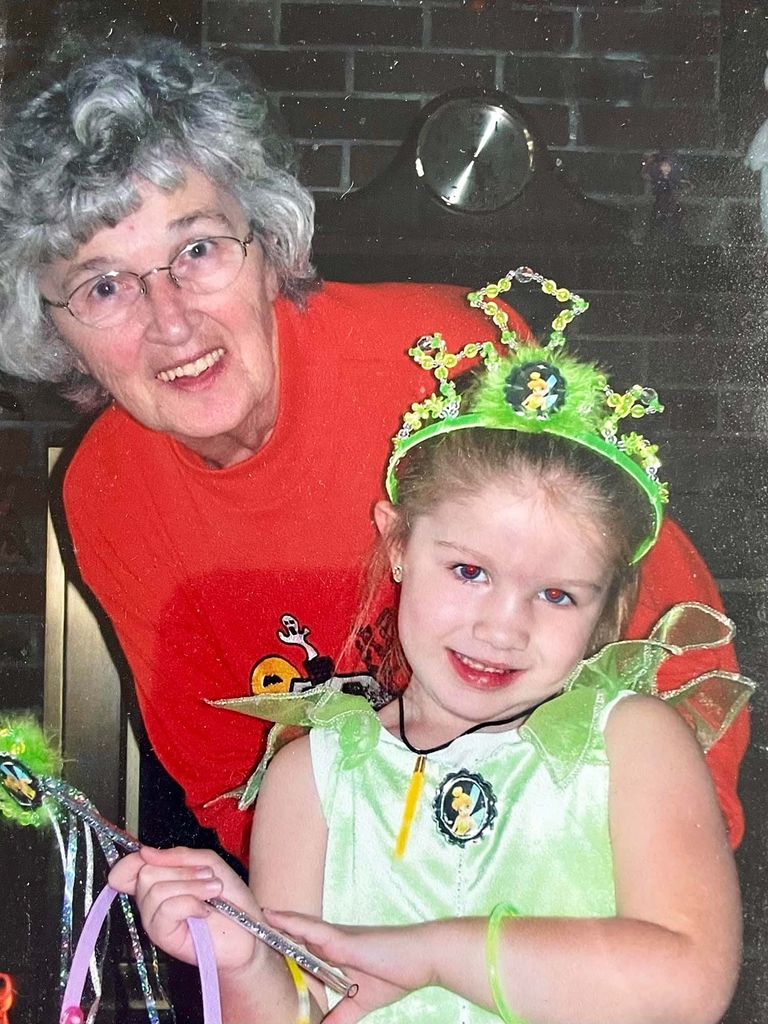
For Women’s History Month, I’m honoring my maternal grandmother, Jane Valentino, an incredible woman who shaped my life in countless ways. Throughout my childhood, my Ma Jane was a constant source of love and guidance. Though I dreaded her math lessons, she patiently showed me the importance of perseverance and reminded me that it’s okay to be sensitive. Every morning, I would watch her do my hair in the mirror before school, absolutely mesmerized, as she made even the simplest routines feel special. On sunny days, we’d sit on the swing in the backyard or shuck corn on the porch, creating memories I’ll cherish forever. Ma Jane always made sure I never ate alone, even though I was the youngest and slowest eater, teaching me the value of connection. Her wisdom, kindness, and strength continue to inspire me, and I’ll forever be grateful for the lessons she imparted. She is with me always.
Sophia Featherstone (COM’25)
Jane Valentino, with her granddaughter Sophia Featherstone (COM’25). Photo courtesy of Sophia Featherstone

Inspiration can be drawn from an awesome mother, daughter, sister… I draw mine from someone who is all of that and a lot more: an emergency physician, founder, and director, a wonderful teacher, Dr. Ashima Sharma. She is an extraordinary motivation for generations to come, and has shaped my career. Not only is she a survivor of the big C, she has also made history by founding the residency program in the department of emergency medicine at NIMS (one of India’s largest tertiary care centers), cultivating thriving physicians. Leading by example, she shaped my ambition of contributing to trauma care in India. Driven by a motivation to teach and nurture, she has inspired numerous budding physicians to reap vicarious pleasure through serving in healthcare, especially in the field of emergency medicine.
Reflecting on Women’s History Month reminds me how Dr. Sharma has shown time and again that building success and overcoming challenges through passion and resilience is life’s truth.
Sai Sankeerth Madakasira (CAMED’25)
Ashima Sharma. Photo courtesy of Sai Sankeerth Madakasira (CAMED’25)
Comments & Discussion
Boston University moderates comments to facilitate an informed, substantive, civil conversation. Abusive, profane, self-promotional, misleading, incoherent or off-topic comments will be rejected. Moderators are staffed during regular business hours (EST) and can only accept comments written in English. Statistics or facts must include a citation or a link to the citation.